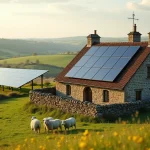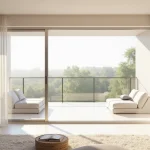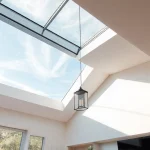Overview of Granny Flats in Devon
Granny flats, also known as accessory dwelling units (ADUs), offer affordable housing options and additional living space for families. In Devon, the installation of these units has become increasingly popular due to rising housing demands and innovative solutions in property design. They provide a versatile option for accommodating elderly relatives, generating rental income, or expanding family space without extensive renovations to the main property.
Devon has witnessed a surge in granny flat installations as homeowners seek solutions amid changing property needs and preferences. This trend aligns with the local push towards offering diverse affordable housing options in response to the growing population and urban challenges.
Also read : Unlocking Tax Incentives: Preserving Historic Properties in Bath for Financial Benefits
However, understanding Devon property laws and granny flat regulations is crucial. Laws vary significantly by locality, impacting where and how granny flats can be constructed. Devon’s local authorities have specific zoning laws and policies that govern the design and implementation of these structures.
The increasing demand for housing has also led to evolving policies that favor innovative housing solutions like granny flats. This push not only addresses housing shortages but supports sustainable living by maximizing existing property spaces. This balance between tradition and innovation ensures that community needs align with regulatory frameworks.
Additional reading : Understanding how aging electrical wiring impacts home insurance rates in liverpool: essential insights for homeowners
Essential Permits for Installing a Granny Flat
In Devon, obtaining the necessary building permits is crucial before starting any granny flat construction. These permits ensure compliance with local regulations and confirm the safety and legality of the construction process.
Types of Permits Required
-
Planning Permission: This is often mandatory and assesses the proposed construction’s impact on the surrounding area. It evaluates factors like design aesthetics and environmental considerations.
-
Development Approval: Ensures that the development adheres to local zoning regulations and building codes. This approval checks that the granny flat aligns with the intended use of the land.
The process of obtaining these permits might present challenges. Many applicants face delays due to incomplete documentation or misunderstandings of Devon property laws. Preparing thoroughly and engaging with local authorities early can mitigate these hurdles.
Homeowners should be aware that failure to secure the appropriate permits can result in fines or mandatory removal of the structure. Understanding the importance of securing these permits is vital to avoiding costly setbacks. Engaging with professionals who understand local regulations can provide invaluable guidance throughout the permit application process.
Application Process for Granny Flat Permits
Embarking on the permit application process for granny flats in Devon requires careful planning and adherence to local regulations. Start by gathering the necessary documentation requirements, which typically include building plans, site surveys, and evidence of property ownership. This comprehensive documentation ensures that your application addresses all legal and technical aspects.
The process begins with submitting your application to the appropriate council, accompanied by detailed architectural plans and surveys. These documents must align with Devon’s zoning laws to ensure compliance. Once submitted, expect a timeline that, generally, can take several weeks to months for review. This period varies depending on the complexity of the project and the workload of the council.
Throughout this application timeline, maintain open communication with local authorities. They can guide you through any nuances specific to Devon property laws that might affect your project. Awareness of typical timelines will help manage expectations and plan around potential delays.
Ensure you have addressed all documentation requirements thoroughly to avoid setbacks. Engaging with professionals experienced in local building codes can smooth the process, offering insight that can help navigate the intricacies of legal and structural requirements specific to granny flat installations in Devon.
Local Regulations Affecting Granny Flat Installations
Understanding Devon local laws is crucial for successfully installing granny flats. Zoning regulations determine where these units can be erected and can vary within different areas of Devon. Typically, these regulations ensure that developments complement neighbourhood aesthetics and do not disrupt local infrastructure.
Building codes mandate the structural integrity and safety of granny flats. They cover materials, design standards, and environmental impact. Complying with these codes guarantees that the granny flat remains a safe and durable addition to the property.
Potential restrictions may include limitations on the size or height of the construction. Different property types, such as heritage properties or those within conservation areas, may face stricter regulations. Therefore, reviewing local planning documents is essential.
When considering zoning laws for granny flat development, it is crucial to be aware of setback requirements, which determine the building’s distance from property lines. These laws prevent crowding and help maintain privacy and light access for neighbouring homes.
To navigate these regulations effectively, homeowners should consult with planning professionals who understand the intricacies of Devon’s legal landscape. Leveraging zoning regulations and building codes knowledge will aid in ensuring compliance and avoiding unforeseen issues.
Practical Tips for Homeowners
Embarking on a granny flat project in Devon requires strategic planning and foresight. As a homeowner, guidance from experts is invaluable. Local professionals familiar with Devon property laws can help navigate through complex regulations, ensuring compliance with granny flat regulations.
Project planning is crucial. Start by defining the scope and purpose of your granny flat. Determine whether it will serve as housing for family members or as a rental unit for generating income. This clarity will guide design choices and budget allocations.
Managing costs effectively can lead to significant savings. Draft a detailed budget that accounts for all expenses, including permits, construction materials, and potential unforeseen costs. Research affordable housing options to optimize your investment. Engaging a financial advisor may also provide insights into cost management strategies and potential tax benefits.
During the permitting process, maintain consistent communication with local authorities to streamline approvals. Preparing comprehensive and accurate documentation will reduce delays, ensuring a smoother process overall. Consider reaching out to community resources or local forums to connect with other homeowners who have undergone similar projects for peer advice and support.
Being proactive and informed will enhance the likelihood of a successful granny flat installation while navigating Devon’s legal landscape efficiently.
Resources and Further Assistance
Exploring and planning a granny flat installation in Devon requires comprehensive resources and professional assistance to navigate intricate regulations smoothly. Engaging with local authorities is essential for acquiring the latest information regarding housing policies and zoning regulations. Devon County Council’s website is a valuable source for current guidelines and updates.
To ensure construction meets all regulatory standards, collaboration with experienced contractors familiar with construction industry contacts is crucial. These professionals can guide you through obtaining necessary permits, adhering to building codes, and optimising your granny flat’s design for both functionality and compliance.
For homeowners seeking community support and peer advice, joining local forums or groups dedicated to real estate and granny flat projects can be beneficial. These platforms often host discussions and share insights into practical challenges and solutions, fostering a supportive environment.
Furthermore, governmental bodies provide additional resources such as workshops or informational sessions. These initiatives aim to educate homeowners on the intricacies of property development and the opportunities available through innovative housing solutions like granny flats. By leveraging these resources, homeowners can ensure their projects progress efficiently, align with local laws, and fulfil personal and community housing needs.










